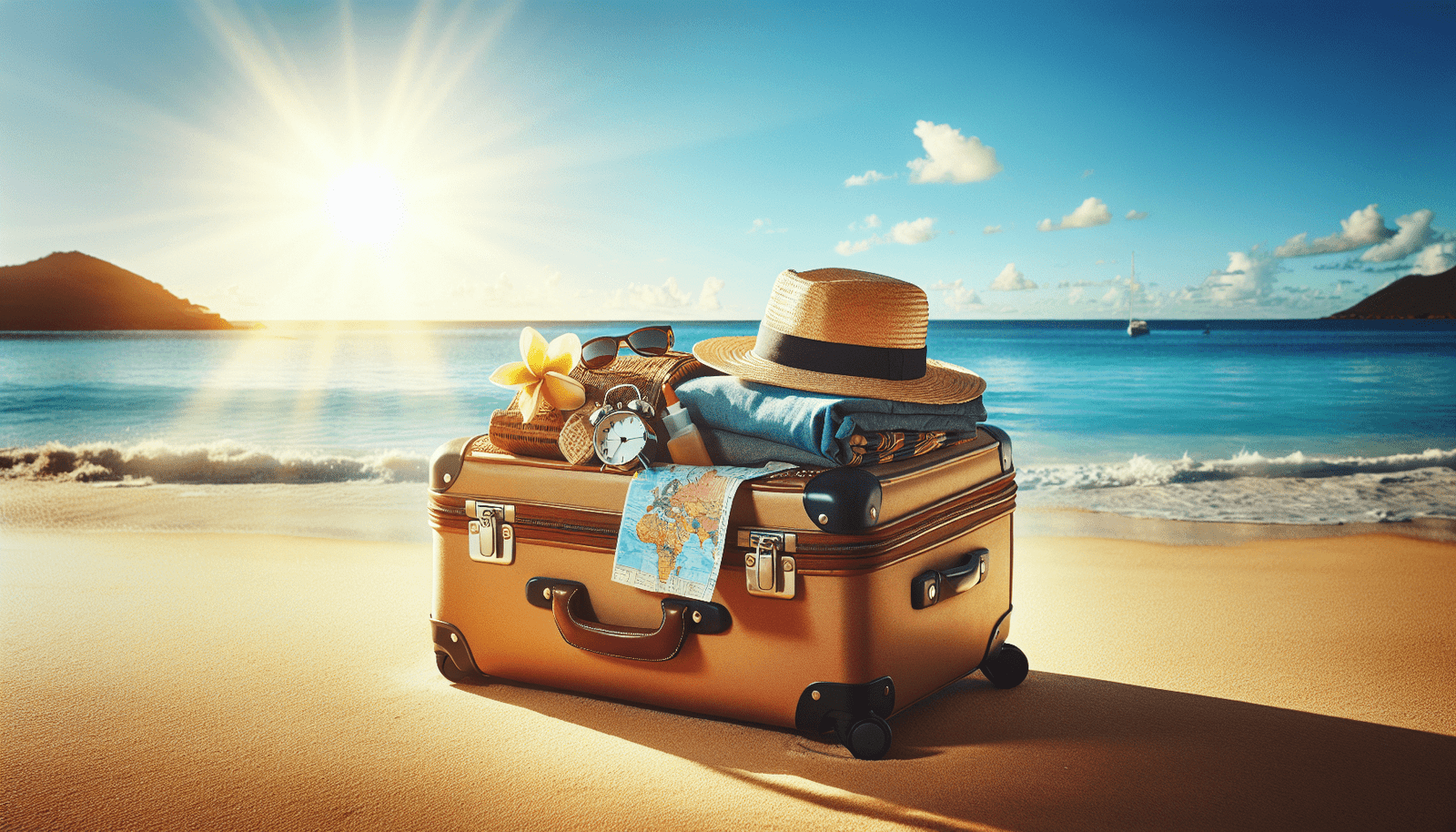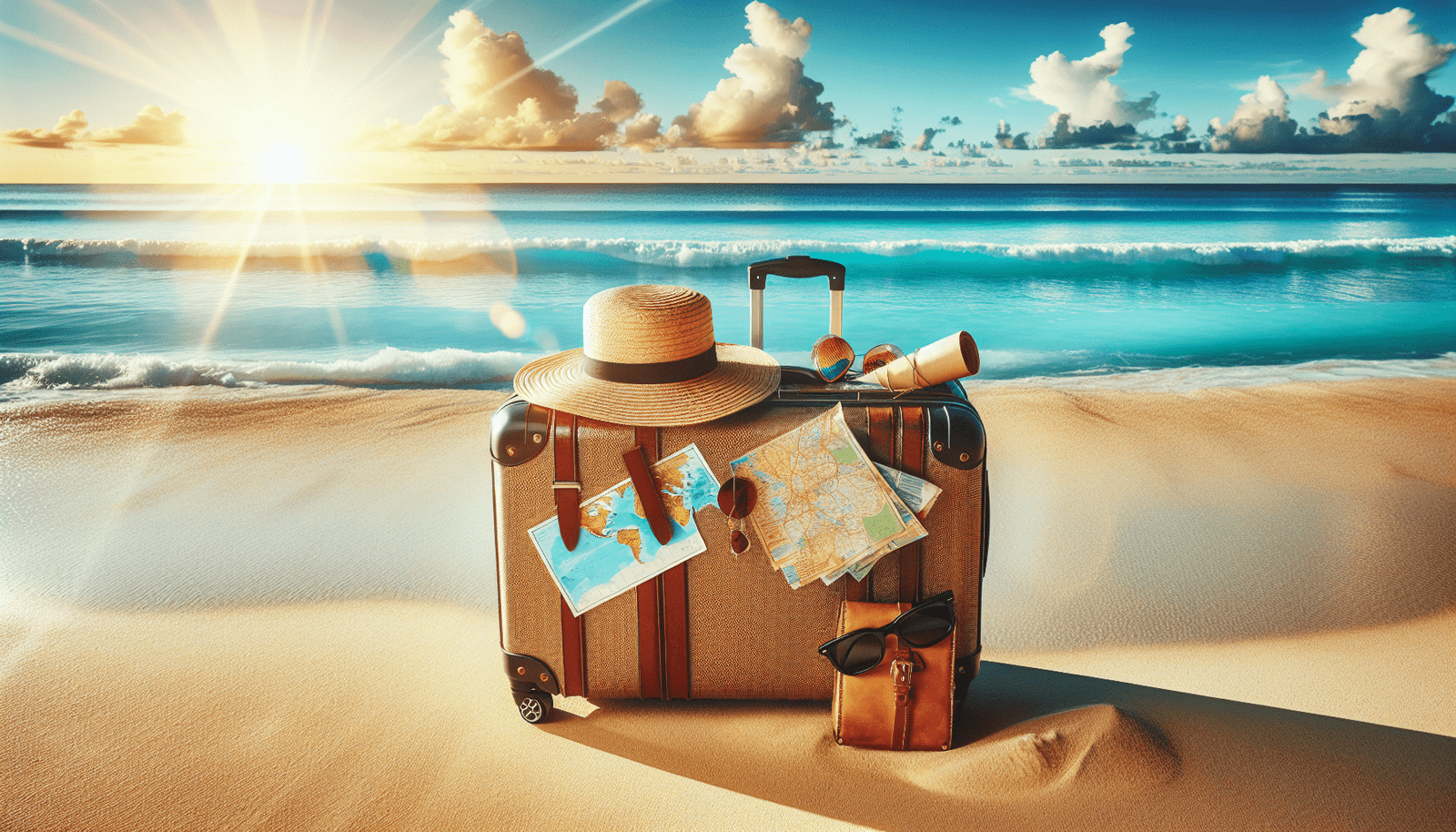You’ve embarked on planning a European adventure, but before you jet off, Nik and Allie from Away Together have some valuable insights for you. Through their video, “10 Tourist Mistakes Americans MUST AVOID In Europe,” they shed light on some common pitfalls that travelers often overlook. From building walking stamina to respecting local customs, adopting these tips could save you time and money while avoiding mishaps that might upset locals or spoil your itinerary.
Their advice doesn’t just stop at practicalities; it dives into enhancing the authenticity of your journey. By stepping away from well-trodden tourist paths and engaging with local experiences, you can uncover the true charm of each destination. Keeping phone plans cost-effective, packing wisely, and utilizing travel rewards strategically are all part of their guidance to ensure your trip is smooth and genuinely enjoyable. So, as you map out your European travels, embrace these pearls of wisdom to create memories that linger beyond your return flight.
The Value of Walking Stamina
Underestimating Walking: A Common Pitfall
Imagine arriving in Europe, ready to soak in the sights, only to find your feet aching within hours. That’s because many travelers overlook the importance of walking stamina. It’s a common oversight, but Europe demands a lot from your legs. Cities like Paris, Rome, and Amsterdam entice with charming streets best explored on foot, and you’ll quickly discover that these pedestrian-friendly environments mean you’ll be walking much more than you might at home. Whether you’re visiting bustling markets, ancient ruins, or simply navigating through a cobblestone labyrinth, your feet are your best transportation. Preparing them through regular walks back home can turn potential exhaustion into enjoyment, making each step an adventure rather than a chore.
Building Fitness Before Travel
Getting fit for a European journey isn’t about hitting the gym hard—it’s about incorporating some walking into your daily routine. Even if you’re in a good overall fitness condition, nothing quite prepares you for hours of walking like, well, walking itself does. Starting a simple walking routine two months prior to your trip—a few miles a day—could prevent blisters and fatigue. Don’t forget to break in your shoes beforehand; you wouldn’t want sore feet to tarnish a day in the Louvre or along the canals of Venice. Building stamina is part of ensuring your trip is memorable for all the right reasons.
Impact on Travel Enjoyment
The ability to walk comfortably and for extended periods will transform your travel experience. Instead of worrying about aching muscles or needing to rest every hour, you’ll have the freedom to discover hidden gems, explore local life, and truly immerse yourself in new environments. The energy saved will let you focus more on the architecture, the food, the people, and less on where to rest next. Enjoyment in travel is often about remaining in the moment, something that’s easier achieved when your body isn’t dictating rest stops.
Avoiding Cultural Assumptions
Europe Isn’t One-Size-Fits-All
Traveling through Europe can sometimes feel like flipping through a rich tapestry of languages, foods, and customs—a vibrant contrast to the homogeneous picture many first-time visitors might expect. Assumptions that all of Europe’s countries share similar cultures or practices can lead to misunderstandings or, at worst, offence. Every region possesses its unique traditions, lifestyles, and societal norms, all worthy of respect and curiosity. Understanding this diversity is key to forming authentic connections and experiencing Europe at its best.
Recognizing Regional Differences
From the culinary delights of Tuscany to the volcanic landscapes of Iceland, Europe’s differences are as pronounced as they are numerous. Each area has its own history and linguistic nuances. The way people greet each other in Spain differs from the traditional manners of Scandinavia, and what constitutes a polite interaction in one country could seem unusual in another. Recognizing and honoring these differences not only enhances your travel experience but also nurtures respect towards the cultures you’re visiting. A little preliminary research can greatly enrich your interactions and experiences.
The Importance of Researching Customs
Delving into the various customs of a region before your trip can save you from possible faux pas. Researching local traditions, appropriate attire, or even meal etiquettes can transform your interactions from touristy transactions to genuine exchanges. This knowledge also enriches your appreciation for the places you visit, uncovering understanding that goes beyond surface-level sightseeing. Each bit of cultural awareness opens up a deeper, more meaningful travel experience, positioning you not just as a visitor, but as a gracious guest.

This image is property of i.ytimg.com.
Accommodation Choices: More Than a Bed
The Homogenization of Hotel Chains
Familiar hotel chains can be a comforting choice for weary travelers, promising predictability and a set standard of services regardless of location. However, these often come at the cost of missing out on the local flavor. Staying in a generic hotel could blur the lines of distinct experiences across countries, leaving your travel memories filled with similar hotel lobbies rather than unique narratives formed by local stays that offer authentic interactions and charm.
Cost Implications of Familiar Stays
Choosing well-known hotel chains can hit your travel budget hard. These accommodations often carry a premium price tag for the familiarity and brand assurance they offer. Consider how these funds could otherwise be allocated—whether it’s sampling local cuisine or immersing in once-in-a-lifetime experiences. Many times, these chain hotels aren’t even conveniently located in the heart of where you want to be, inadvertently costing you both time and additional travel expenses.
Immersive Local Alternatives
On the other hand, opting for local accommodations like boutique hotels, bed and breakfasts, or even home rentals allows you not only to save money but also to immerse yourself in the local culture. These options can provide a glimpse into the daily life of locals, sometimes offering homemade breakfasts and personalized recommendations that a standard hotel concierge desk may not. Staying in a place full of character enriches the travel narrative, creating connections with people you meet and surroundings you experience.
Understanding the Necessity of Travel Insurance
Emergencies Aren’t Scheduled
Every adventure carries potential risks, though this shouldn’t deter you from setting out on a journey. Travel insurance acts as a safety net for the unplanned—whether it’s a sudden illness, an accident, or a global event impacting travel plans. Unfortunately, emergencies do not respect travel plans. The peace of mind that comes from knowing you’re covered should life throw a curveball is invaluable.
Financial Safeguards on the Road
More than just health emergencies, travel insurance covers a spectrum of financial issues. Luggage can be delayed or lost, flights can be canceled, and unexpected hotel stays might become necessary. These hiccups can turn into costly setbacks without the appropriate coverage. Emergency car repairs or sudden changes in travel routes could arise without prior warning, and having insurance can ensure these don’t become financial burdens.
Debunking the Travel Insurance Myth
Many travelers erroneously believe travel insurance is an unnecessary expense, often dismissing it as something they’ll never use. That’s a myth worth dispelling. While you hope never to need it, having insurance means protecting both your peace and finances. It’s not just about worst-case scenarios; it’s about planning for uncertainties that could compromise your journey or fun. Considering options that fit your travel style and specifics ensure both preparedness and protection.

Managing International Phone Plans
The Agony of High Roaming Costs
Travelers often find themselves quickly racking up massive phone bills from roaming charges, which can come as an unpleasant surprise after returning home. In the age of digital dependency, forgetting to plan for international phone use can prove financially stressful. Overspending on scattered calls and data usage can detract from a joyful, stress-free experience abroad.
Options for Staying Connected
The modern traveler has options aplenty to avoid these pitfalls. International roaming plans from your provider may offer ease but are often expensive. Alternatively, purchasing a local SIM card upon arrival offers a cost-effective way to stay connected, facilitating ease of navigation and communication within the country. Meanwhile, eSIM technology provides another seamless method, making the switch even simpler without the need for a physical card.
Affordable Connectivity Solutions
The key is planning ahead to find the best option that suits your connectivity needs. Many specialized services offer international data plans that work across countries, offering flexible and affordable solutions. Some options even allow top-ups as you go, ensuring that you only pay for the data you need. Remember, staying connected does not have to break the bank, and mindfulness in this aspect enhances travel satisfaction.
Escaping the Tourist Trap
Finding the Authentic Experience
Tourist traps can sometimes dilute the authenticity that a traveler seeks. While there’s certainly a place for seeing iconic sights, venturing slightly off the beaten path often reveals a richer tapestry of the local lifestyle. Moving beyond the thick of tourist zones introduces you to a more genuine experience of the places and people.
The Value of Local Insights
Local insight is an untapped gem for discovering hidden treasures. Engaging with residents or frequenting locally owned establishments opens doors to unique experiences and stories. Locals know the best eateries, vibrant markets, and the lesser-known corners that showcase their community’s essence. A simple conversation can lead you to the true heart of a destination, full of vibrancy and warmth beyond what any guidebook can offer.
Venturing Beyond the Guidebook
Guidebooks often lead everyone to the same spots, leaving the thrill of exploration somewhat muted. Take them as starting points, but let curiosity be your guide. Explore according to local recommendations or based on serendipity. Discovering an unlisted café or an untrodden path creates unique travel memories. Allowing for spontaneity can be the difference between a regular holiday and a memorably rich journey.

Leveraging Points and Miles for Savings
Credit Cards as Travel Tools
Travel-savvy individuals know the power that lies in strategic credit card use. With the right card, purchases reward you with points or miles, transforming everyday expenses into part of your travel fund. These cards often offer benefits like travel insurance, no foreign transaction fees, and access to airport lounges, adding more value beyond the points themselves.
Maximizing Reward Systems
To gain maximum advantage, knowledge of how to optimize reward systems is essential. Accumulate points through daily spending and look out for special promotions where bonuses are offered. Employees or frequent flyers can reap multiple rewards through alliance programs with airlines and hotels. Understanding how to earn and redeem points strategically can substantively reduce travel costs.
Strategic Planning for Big Savings
Leveraging the power of miles requires a bit of forward planning and keeping an eye on potential savings opportunities. It’s about aligning your spending and point accumulation with your travel goals. Learn about transfer partners and seek opportunities to convert points into flights and stays at a fraction of their original cost. Smart use of points and miles can lead to upgraded experiences, saving significant money for more adventures.
Respect for Local Customs: A Bridge
Shifting Habits Abroad
When we travel, we carry our habits with us, often without thought to potential cultural clashes. In many places abroad, small gestures can have large implications; shifting your mindset to respect local customs fosters respectful interactions. It’s about openness and sensitivity, aligning your actions with the culture you’re visiting rather than unintentionally imposing your own.
Embracing Cultural Etiquette
Cultural etiquette varies greatly, and embracing it is a sign of respect and openness. Recognizing social manners, dress codes, and communication styles helps bridge initial cultural gaps. A little effort to learn a few local phrases or customs goes a long way in breaking barriers and building rapport, making for a harmonious exchange of cultural values and experiences.
The Benefit of Locally-Aligned Behavior
Empathy and respect blossom when you align with local customs, enhancing both your understanding and acceptance of diverse cultures. This alignment aids in crafting memories, fosters personal growth, and builds bridges rather than walls. Respectful behavior shows appreciation for being a guest in their country and may lead to enriching encounters you might not have experienced otherwise.
The Art of Packing Light
The Burden of Overpacking
Starting a trip with a bulky suitcase can be a cumbersome, regretful decision. Navigating through busy airports, cobblestone streets, or small hotel rooms becomes difficult with too much luggage. Overpacking often results from “just in case” thinking, leading to carrying items never even touched during the trip.
Strategic Suitcase Choices
Efficient packing focuses on versatility and essentials. Consider the climate and planned activities, choosing multi-use clothing and layering pieces that work in various situations. Select footwear wisely and pack items that complement each other. If you’re thoughtful about what you truly need, packing light becomes an opportunity for freedom and spontaneity.
Versatility in Clothing
Creating versatile wardrobe options not only reduces the weight on your shoulders but also allows for flexibility during the trip. Choose neutral tones that mix easily, opt for fabrics that resist wrinkles, and don’t forget that laundry facilities or services are often available. Streamlined clothing options eliminate stress and simplify logistics, allowing you to focus on the richness of your surroundings.
Conclusion: Crafting the Ultimate Travel Experience
Learning from Mistakes for Future Journeys
The beauty of travel lies not just in perfect experiences, but in the lessons gleaned from imperfections. Each misstep offers guidance for future adventures, reminding you to adapt, prepare, and research. With an open mind, every journey informs the next, enhancing appreciation and understanding.
Enhancing the Traveler’s Experience
Your travel experience can always be improved by looking through the lens of learning and adaptation. Whether it’s building stamina, understanding local customs, or leveraging technology for ease, you can enhance the joy and depth of exploration. By avoiding common pitfalls, you pave the way for more meaningful and fulfilling travel stories.
Beyond Mistakes: Building Cultural Bridges
Travel is about building bridges to cross into new territories of understanding and shared humanity. Beyond learning from mistakes, it’s about connecting across cultures, appreciating diversity, and adding layers to your world view. In crafting your ultimate travel experience, you open yourself to the world, respecting the intricacies of each destination and the stories left by its people. Embracing this spirit turns every journey into a vibrant tapestry of memories and connections.
Some of the links on this site are affiliate links, which means I may earn a small commission if you click on them and make a purchase, at no additional cost to you. As an Amazon Associate, I earn from qualifying purchases.

